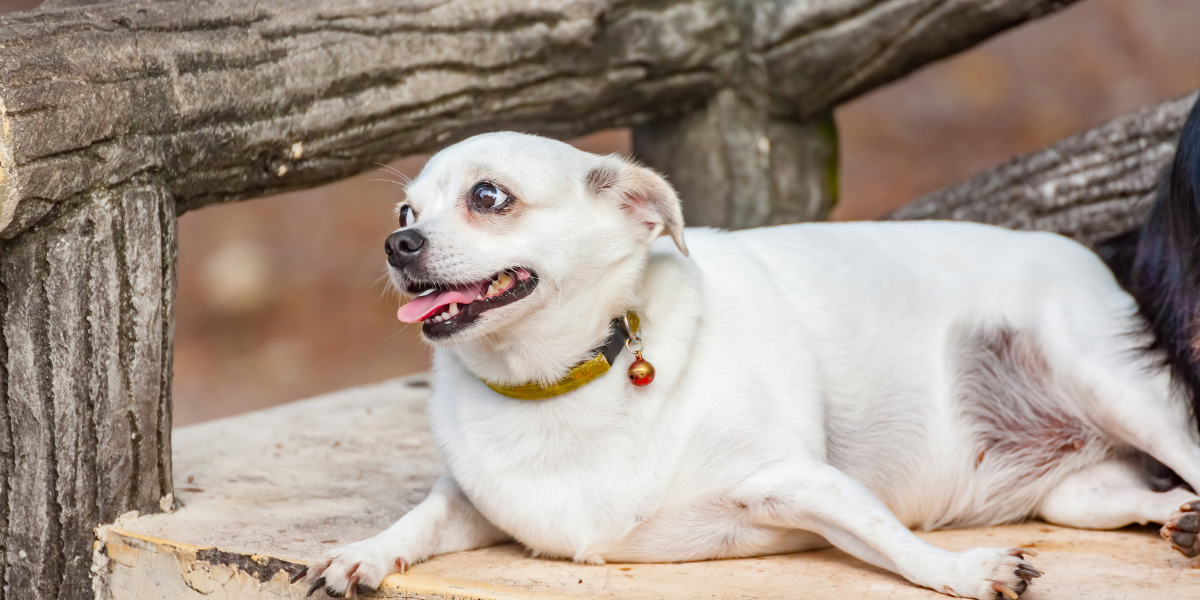Bloat In Dogs
Doctor of Veterinary Medicine

While efforts are made to answer all questions as quickly as possible, if an immediate answer is required or if your pet is in need of urgent or emergency care, contact your pet's veterinarian immediately.
Doctor of Veterinary Medicine

You will receive an answer from Dr. Lindsay and our vet/tech team as soon as possible, usually the same day.
All answers are provided for informational or educational purposes only, and are intended to be a supplement to, and not a substitute for, the expertise and professional judgment of your pet's veterinarian.
It may be necessary to consult your pet's veterinarian regarding the applicability of any opinions or recommendations with respect to your pet's symptoms or medical condition.
CloseDoctor of Veterinary Medicine

An error has occurred, please reload the page and try again.
CloseWhile efforts are made to answer all questions as quickly as possible, if an immediate answer is required or if your pet is in need of urgent or emergency care, contact your pet's veterinarian immediately.
There is no answer related to your question

Bloat is every big dog owner’s worst nightmare. Gastric Dilatation and Volvulus (GDV), or bloat, is a life-threatening emergency in which the dog’s stomach fills with gas and then rotates, twisting the entrance and exit to the stomach, blocking blood circulation to other vital organs. Without emergency veterinary treatment, bloat is fatal.
Signs Of Bloat In Dogs
Knowing the signs of bloat greatly increases your dog’s chances of surviving bloat should they ever have an attack. These symptoms typically begin 2-3 hours after a large meal, though can occur at just about any time.
Signs of bloat include:
- Gagging and retching, unable to vomit
- Drool or foam around the mouth
- Swollen, distended belly - though it may be harder to detect in deep-chested dogs
- Pacing and restlessness - dog can’t seem to get comfortable
- Trouble breathing - as the stomach swells, the lungs may have less room in the chest cavity, making it harder for the dog to breathe
- Standing with the neck extended is a sign that your dog is struggling to breathe
- Rapid heart rate due to pain and distress
If your dog has symptoms of bloat, do not hesitate to take them to your veterinarian. If it’s after hours, go to your local emergency vet clinic. Bloat can kill in as little as one hour.
Possible Bloat Risk Factors
There are many myths and superstitions surrounding bloat in dogs and what causes it. While it’s not always clear what causes bloat, some habits have been shown in research studies to be potential risk factors.
- Elevated feeders have been shown to increase the risk of bloat by 110%.
- Stress seems to be a factor as bloat is sometimes triggered by boarding or a long car ride, and it’s more prevalent in dogs with anxiety or aggression.
- A kibble-only diet increases risk of bloat, while adding canned or fresh foods seems to help.
- Dog foods that contain citric acid as a preservative, when moistened with water before serving, increase bloat risk by 320%.
- Feeding one large meal a day stretches the hepatogastric ligament, which secures the position of the stomach in the abdominal cavity.
- Eating too quickly can contribute to bloat as the dog can swallow air. It may help to use a slow feeder.
Bloat can happen to any dog, but it’s more common in large dogs and those with a deep chest. In bloat-susceptible breeds like the Great Dane, Standard Poodle, German Shepherd, and Boxer, your veterinarian may recommend gastropexy, a surgery during which your dog’s stomach surgically “tacked” to prevent twisting. This surgery can be done when your dog is spayed or neutered, or may be done at any time.
After a bloat episode, a dog’s chances of having another episode are 76%. But with gastropexy, the chance of recurrence is just 6%. Ask your veterinarian if your dog is a good candidate for gastropexy if they have a history of bloat, are a purebred or mix of one of the susceptible breeds, or if they have a first-degree relative that has had bloat.
 Swipe
Swipe























